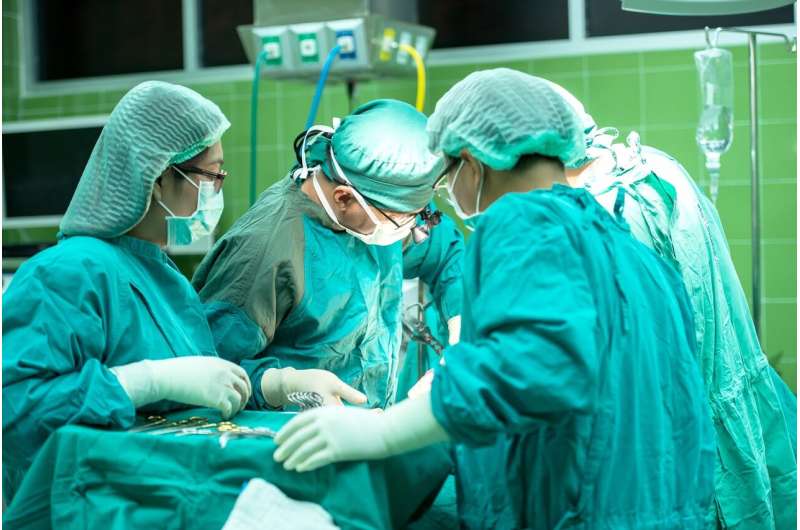Home » Health News »
Making innovations in surgery safer

A study to help surgical innovations be developed more safely and efficiently has published a ‘core outcome set’ for new surgical techniques and devices in the Annals of Surgery. The COHESIVE study, led by National Institute for Health Research (NIHR) funded researchers at the University of Bristol, devised the set through a robust process involving patients, surgeons and other health professionals.
Before new medicines can be used in clinical practice, they are rigorously tested through a highly regulated process. However, new surgical techniques and devices can be introduced without firm evidence that they are safe and effective. This can compromise patient safety and health. This problem is partly caused by uncertainty and inconsistency in the selection and reporting of outcomes of new surgical techniques and devices.
A solution to this problem is to develop a core outcome set, which is an agreed minimum set of outcomes that should be measured and reported in all uses of a new surgical device in clinical practice, research studies or audits. A core outcome set should improve the quality of information available to patients and health professionals for decision-making and monitoring safety and effectiveness.
To develop the core outcome set, the researchers found out from patients, surgeons and other key stakeholders which outcomes are most important to them, as well as doing a search of the literature to see what outcomes had been reported on in studies. Through a series of surveys and a ‘consensus meeting’ with stakeholders, a list of nearly 8,000 possible outcomes was whittled down to 8 core outcome domains.
Some outcome domains were specific to innovation, such as modifications to the surgical procedure, unexpected disadvantages, device problems, technical procedure success and surgeon experience. Others were more generally focused on effectiveness, such as intended benefits and expected disadvantages. The COHESIVE team recommend their core outcome set is used in all surgical innovation studies from the earliest opportunity and before they get to the randomized controlled trial stage, the gold standard test of an intervention.
The study was co-led by Dr. Kerry Avery, Senior Lecturer at the University of Bristol and NIHR Bristol Biomedical Research Centre (BRC), and Miss Shelley Potter, an NIHR Clinician Scientist at the University of Bristol and NIHR Bristol BRC and Associate Professor of Oncoplastic Breast Surgery at North Bristol NHS Trust. Dr. Avery said:
“It may surprise many people to learn that surgical procedures haven’t traditionally been subject to the kind of regulation we see in other areas of medicine. But to ensure safety and improve efficiency, a core outcome set is an important step.
“Our core outcome set has been developed with the input of many health professionals, and patients have been involved at various stages of the design process. Surgeons and researchers using our core outcome set can therefore be confident that it’s robust and representative of the priorities of both patients and healthcare professionals.
“We encourage all surgeons and researchers to use our outcome set to help push the boundaries of surgery further, safely and efficiently.”
Source: Read Full Article



